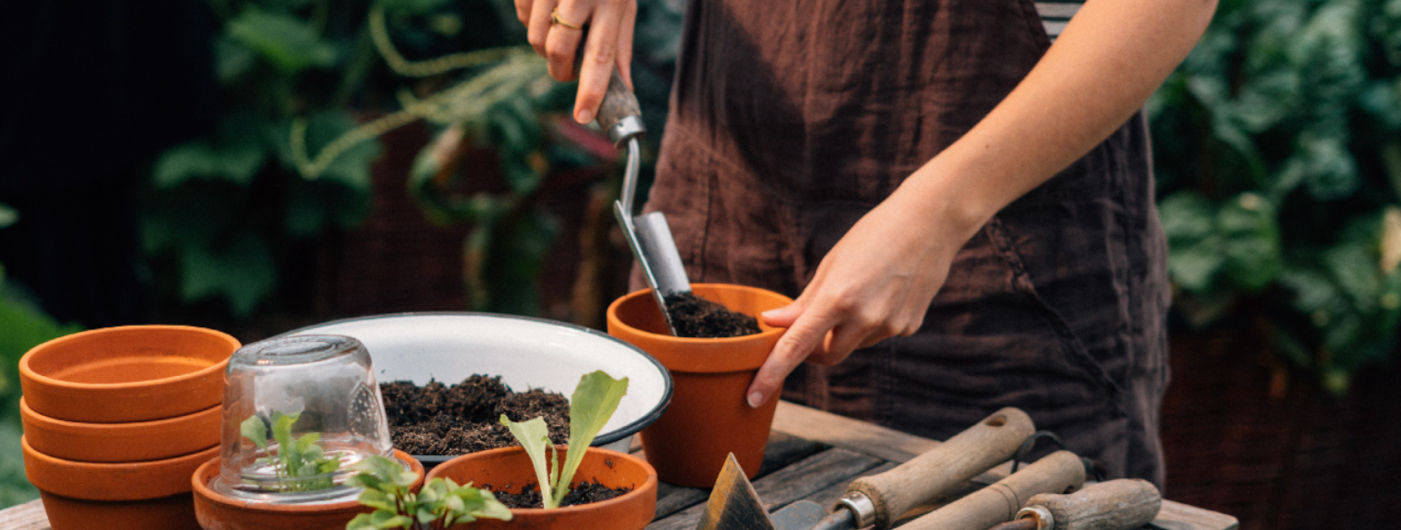Magic Garden Seeds - A beautiful story
“Even at a time when species loss is something we’re all talking about, this is still a business,” says Harald Schreiner. “You have develop a network of suppliers, build relationships and offer long-term security. That’s the only way what we’re doing here can work.” Schreiner is the Managing Director of Magic Garden Seeds. For more than 20 years the company has offered seeds of unusual and almost-forgotten crop and useful plants, old vegetable varieties, herbs and medicinal plants from all over the globe, wild plants, exotics, ethnobotanically interesting plants – and many other plant seeds besides.
This makes the company one of the few exceptions at a time when the seed market is dominated by big chemicals groups like Bayer-Monsanto – with their genetically modified and patented hybrid seeds – and when the medium-sized seed producers which had a rich tradition in Germany have increasingly disappeared or been taken over. “Who is there today who still knows that you can grow potatoes from seed, a process that constantly produces new genetic material adapted to its environment?” So even though this is a business, the Magic Garden Seeds business model is based on certain fundamental values.
The company only sells open-pollinated seed – seed that will breed true-to-type plants. It doesn’t stock any hybrid breeds, or any patented or genetically modified seeds.
Schreiner and his co-director Andreas Poszar have built up a broad and diverse network of suppliers over the years – extending from the Amazon to Sicily, from France to India, from Bavaria to the USA. By guaranteeing to buy these producers’ seed year on year they’re helping to ensure the survival of rare and heirloom cultivated and useful plants. “We’re selling rather more than just chives,” says Schreiner.
“We encourage our customers to harvest and sow their own seed, to pass it on freely and to breed their own varieties,” says Schreiner’s co-director Andreas Poszar, who laid the foundation of the company in the mid-1990s.
“Back then, I trained as an alternative practitioner and was especially fascinated by rare herbs, and medicinal, magical and shamanic plants – by the link between humans and plants.”
After a while Poszar also wanted others to benefit from the contacts he’d made so he typed out a small catalogue people could request by sending a stamped addressed envelope. “It was a crazy mix of special medicinal plants and unusual vegetable varieties.”Herbs, ethnobotanicals, medicinal plants and old vegetable varieties are still right at the heart of what Magic Garden Seeds does, and Poszar has kept up those early contacts to this day – to the shaman in the Amazon region who supplied his first Ayahuasca seed, for example, and to a mandrake gatherer on Sicily.
Poszar and Schreiner were still students when they founded their first company, after a party in a student accommodation block in Kassel in 1997. A small office, a shelf for seeds, and they carried on with their studies at the same time. Did they make any money from it? “Good question. Probably not,” says Schreiner today. Even so they kept on expanding their product range, initially together and then in separate businesses for a few years. Always with the same interest and the same enthusiasm – and launching their first online shops as early as the late 1990s.
The pair finally ended up in Regensburg in 2007, where they initially shared an office. In 2015 they took their close collaboration a step further by founding a company together – Magic Garden Seeds – and further expanding their product range. They added a huge offering of tomato and chilli varieties, plus a constantly growing range of flowers. “More of the normal plants, you might say,” adds Schreiner.
In the same year, the company achieved organic certification, making its entire supply chain and production process transparent. The development of in-house designs, packaging and the company brand also came increasingly to the fore. And all of it’s done in Germany – including the seed packing, which is carried out by hand.
With Gunilla Lehmann, the company brought a new team member on board to oversee marketing (texts and images) and the online shop, as well as developing special products to counterbalance the seasonality of the seed business.
Today, Magic Garden Seeds offers a huge range of different seed kits – from heirloom vegetables to various combinations of culinary herbs, from urban gardening kits to tobacco and cat herbs, from Peyote cactuses to magical plants. Recent years have also seen an annual Advent Calendar – designed in-house and containing 24 different seed packets. And while these products are partly developed to reach a wider audience with high-quality products for the increasingly important Amazon retail business, this is also about another key aspect of the Magic Garden Seeds philosophy.
“No-one grows all 24 different seed varieties themselves,” observes Gunilla Lehmann. “They’ll give some of them away, or share them – in the process sharing not only the seeds but also the fascination of what happens when you put a seed into the earth and grow a plant from it.”
This fascination is still what drives Andreas Poszar today. He personally propagated the first henbane seeds in the Magic Garden Seeds range – from seeds he’d gathered in the grounds of the ruined medieval castle at Donaustauf. “So these seeds are directly descended from the plants once used to treat medieval barons. It’s a beautiful story!”
German text by Stefan Aigner (Regensburg-digital.de)

